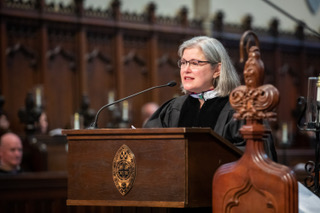Books |
Margaret Renkl: Life is hard. The world is beautiful. And most people are good.

By
Published: May 16, 2023
Category:
Non Fiction
Our 21-year-old daughter doesn’t read the news, but she knows who the good people are and what the bad people want to do to the good people, and she’s seen some cruelty and has heard the grownups talk about Next Steps if we suddenly wake up in a country that wants to hurt everyone who won’t obey orders — I think she’s smart not to fill her head with all the terrifying stuff her parents know.
Lately, because she’s an expert in a popular movie genre, I’ve been pitching ideas to her, thinking we can collaborate, amuse ourselves, and see our handiwork on a screen. She shoots down every idea. I expected that. What I want her to see is that I’m thinking Future. It would be so much easier, I know, to think Despair.
There’s one opinion writer for the New York Times who knocks me out, every time. Margaret Renkl lives in Nashville, which means Nature is close by and so are some of the stupidest politicians in the country. It’s tricky to write about both. She does it.
Margaret Renkl received an honorary doctor of letters degree and delivered a baccalaureate address at the University of the South a few days ago. The Times published it under the headline “Graduates, My Generation Wrecked So Much That’s Precious. How Can I Offer You Advice?” I’ve made the link public so you can read the whole thing. But I want to riff off the main points.
There is probably more bullshit uttered in graduation speeches than at weddings that everyone but the newlyweds knows will end in divorce. Margaret Renkl will have none of that:
I wouldn’t blame you if you’re wondering how somebody of my generation, which wrecked so much that is precious, could dare to offer you advice. My only response is that age has exactly one advantage over the energy and brilliance of youth: Age teaches a person how to survive despair.
The years have shown me that hardship is only one part of life, and not remotely the largest part. Hardship always lives side by side with happiness. Pain always finds its fullest partner in joy. Love takes many forms, some of them surprising, and people are almost always kinder than we expect. The world is beautiful. And most people are good.
Who says different? Someone who wants you to feel bad. Someone who makes money off your despair or needs you to feel too bummed out to vote. But most people are good. That is, they do the best they can, every day.
Renkl suggests one way to feel better about our prospects is to get closer to Nature.
As you enter the world, remember, too, how beautiful this place is. Remember the gentle fog. Remember the rocky bluffs and the immense diversity of trees. Remember the green coves and the green ponds and the birds that migrate by the hundreds of thousands through the night sky above your dorms. Remember the gentle deer picking their way through the fog on their impossibly delicate hooves. Remember the cry of the broad-winged hawk teaching her fledglings to hunt.
Wherever you go, even in the deepest city canyons far from these mossy coves, there will be fascinating creatures who are trying to live out their lives in the same place where you are trying to live out yours. Make room for your wild neighbors. Learn what they need and how you can help them. It will make you feel better about the mess your species has made of things if you can find a way to help.
And merely by falling in love with the world, you will begin to make it better. Human beings will work to their dying breath to save something they love. Fall in love with the wild world, and you are taking the first step toward saving it.
And there are personal things you can do to ward off despair.
Late at night, just before I surrender to sleep, I’ve been reading a few pages of Pema Chodron’s little book, Awakening Loving-Kindness. The windows are open now, and I hear the music from the street, and the cell phone chat of a woman walking past my building who says she’s angry though she really sounds more hurt than angry, and I let my head pull a line from the ozone, and I text it to Mary in France and my daughter watching some horror movie on her laptop, and any other lifeboat friends who are up late. The other night the line was “Dream of angels smiling on you.” In another year, I’d be embarrassed to put my name near a sentence like that. This year, your clever and sophisticated Butler wants to believe the world is beautiful and most people are good, and he hopes there are angels smiling on children as they sleep.

